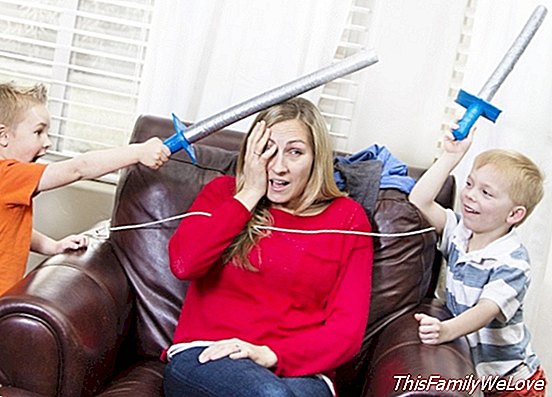Risk behaviors in minors, how to prevent them?

Who does not like to have a good time? Enjoying leisure and letting some laughter in the air is a highly recommended activity. However, sometimes the search for these moments may involve the practice of some risk behavior that entails dangers for minors. Therefore, sometimes the fun can lead to serious problems for their integrity.
As the main educator in the child's life, parents have to prevent these situations and make children understand the danger they face. As the team of Understood, the first step is to understand why your children practice these activities and what leads them to make these decisions that entail enough risks for them.
Understanding the child
The first step to prevent these behaviors is to understand the child and the adolescent. Social pressure can cause the child to make a activity that I did not want to do at first. Whether it is the practice of a dangerous game so as not to be considered a coward or to drink alcohol so as not to be socially excluded, both attitudes have in common the search to fit into their group of friends.
It can also happen that the child finds fun the adrenaline sensation that involves facing danger and associates the good times with these activities. Both in the first case and in the latter, parents should sit down and talk with their children to discuss the reality of their situation. Although the minors think that of these behaviors Something good can be derived, in reality the negative results can be terrible.
Therefore, the first step should be to establish rules of behavior on what can or can not be done. The limits they must be the first step for the prevention of risk behaviors. Although these can produce friction between parents and children, adults must assert their authority over the intentions of the children and prohibit the practices that can generate an evil.
It is not a matter of restricting every exit with friends, but of remembering that dangerous behaviors should be avoided. For that, nothing better than to suggest alternatives healthier to perform with both their peers and their parents. A cinema, a football game, a field trip. All these ideas are more advisable, and of course, in all of them you have to maintain certain standards.
Importance of standards in children
Children must get used to living between norms. These are very important in the long-term development of the little ones. These are some of the points that you can learn:
- Differentiate good from evil. A rule does not cease to be an indication of what is wrong. That which should not be done will be forbidden, on the contrary the good will be allowed.
- They promote responsibility. We all prefer to have fun with obligations, but the rules remind us that we must be responsible and carry out chores.
When setting standards in the smallest, the following aspects must be taken into account:
- The age of the child. You can not put a large list to the small child, as they grow the responsibility will also increase.
- Clear and concrete. Do not give rise to interpretations by the little ones.
Damián Montero




